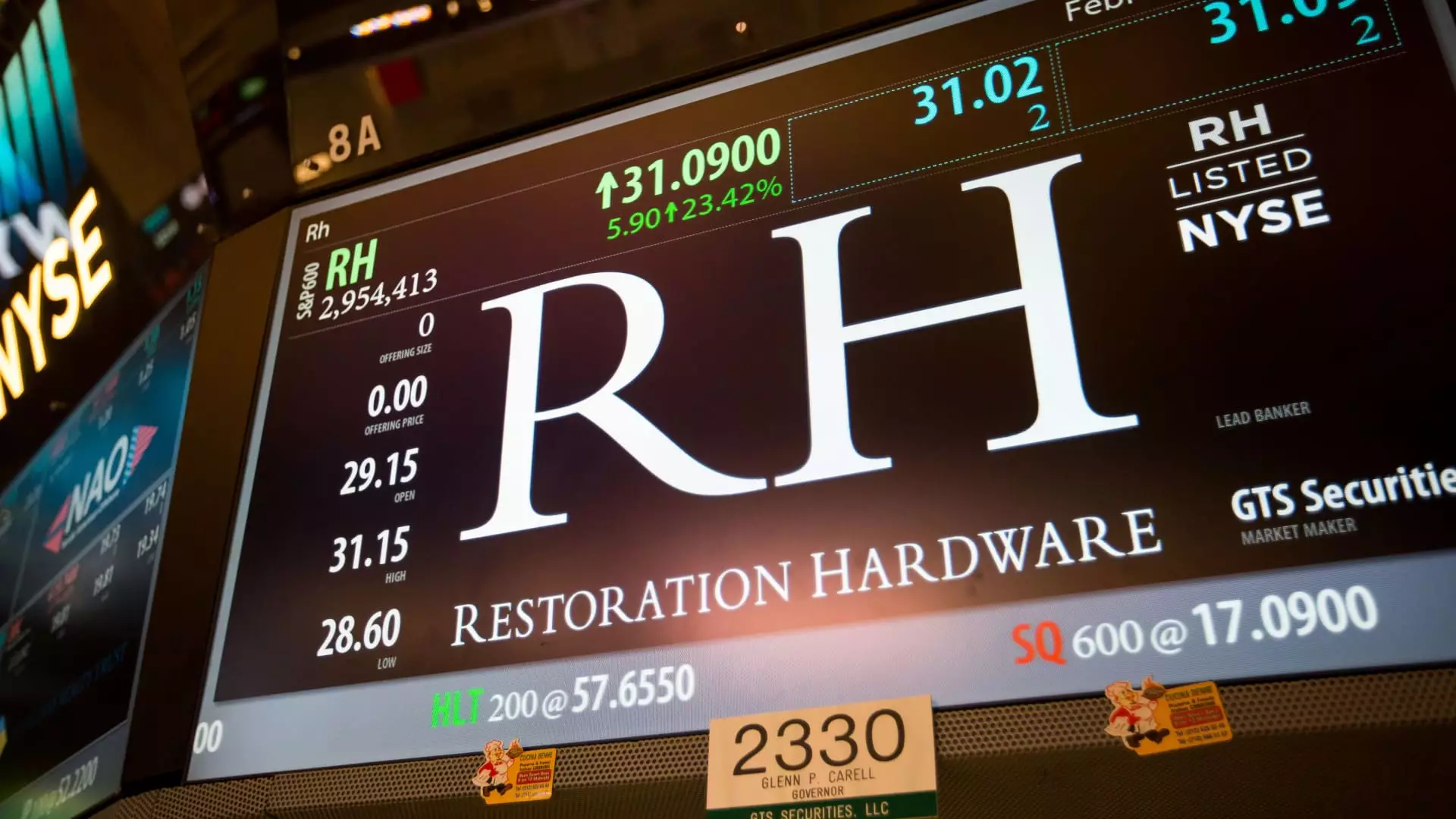The recent downturn in RH’s financial outlook underscores a troubling truth: global political tensions and protectionist policies are increasingly undermining the stability of the luxury furniture sector. While brands like RH once thrived on exclusivity and craftsmanship, they are now caught in the tempest of international trade wars that threaten to erode their core business models. Their revenue shortfalls and revised projections reveal a sobering reality—luxury consumer markets are becoming more volatile, not because of declining demand, but because of uncertainty driven by government policies. In a market driven by the desire for premium quality and bespoke design, this added layer of unpredictability raises the question: Can luxury brands truly sustain their identity and profitability amid such geopolitical upheavals?
The Illusion of Resilience in the Face of Political Risk
RH’s leadership appears confident in their ability to adapt, citing operational shifts away from China and exploring alternatives in India. However, these strategic moves highlight a deeper vulnerability: the fragility of global supply chains that have historically underpinned luxury manufacturing. Despite reassurances of resilience, the truth remains that the industry’s fabric is strained. Trade policies, especially under a climate of unpredictability where tariffs may fluctuate at any moment, threaten to undo years of investment in craftsmanship and brand prestige. The delay of their Fall Interiors Sourcebook and the expectation of revenue shifts into future quarters serve as stark reminders that even the most luxurious brands face harsh economic realities—they are not immune to the market’s turbulence, and their ability to adapt is not limitless.
The Political Theatre and Its Impact on Industry Strategy
What is particularly disconcerting is how political decisions—often made for short-term nationalist gains—disrupt long-term industry planning. President Trump’s threat to impose new tariffs on imported furniture exemplifies this risk. Such policies, announced under the guise of revitalizing American manufacturing, are, in practice, creating unintended consequences: increasing costs, reducing competitiveness, and fostering an environment of uncertainty. RH’s CEO voiced concern over the practical difficulty of recreating large-scale furniture manufacturing within the United States—a challenge that exposes the unrealistic nature of political promises versus economic realities. This discordance between policy rhetoric and manufacturing feasibility highlights a fundamental flaw in relying on government intervention as a sustainable solution for industry health.
The Cost of Political Posturing on Consumer Confidence
At the heart of this dilemma lies a deeper issue: the erosion of consumer confidence among high-net-worth individuals who drive the market for luxury furniture. If tariffs and political risks cause price hikes or delays in new collections, the perception of luxury goods as timeless investments becomes compromised. Buyers may hesitate or seek alternatives, further diminishing demand. While RH claims to be “well positioned” to withstand market fluctuations, the reality is that political gamesmanship injects a corrosive doubt into the luxury sector’s future. The industry’s resilience depends not just on operational agility but also on the stability of the political environment—an increasingly rare commodity in today’s polarized climate. Ultimately, unless policymakers recognize that protectionism can backfire and stifle economic growth, luxury brands will continue to face an uphill battle against factors outside their control.

